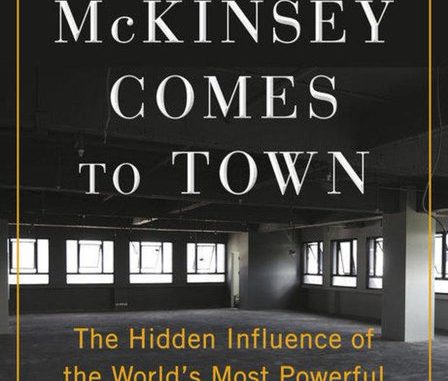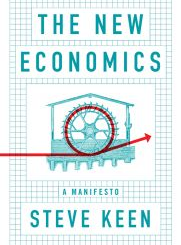
Book Review by Roger Steer
In January 2021 Brave New Europe published “The Americanisation of European Healthcare” which was my attempt to describe the forces at work to change the way healthcare is delivered in Europe, and to open the healthcare market to US multinationals.
Progress has been made in the UK following the eventual passage of the Health and Care Act 2022 which parcels the NHS into Integrated Care systems and makes it easier to avoid competitive tendering procedures in contracting out of services. In Europe, in contrast, “EU Global Health Strategy: Better Health for All in a Changing World” was published in November 2022.
It promotes amongst other things:
In addition it promotes “Leveraging the potential of health data worldwide and fostering the use of new technologies”.
The problem with this approach is that it appears to promote a “basic“ health care package with local discretion provided to countries to vary this. It is thus compatible with an “Accountable Care” model being marketed by McKinsey and the Managed care industry in the US which accepts huge state subsidies on the one hand and the ability to manage the provision of non-basic health services at a profit.
This is a long winded way of setting the context for me to this book.
The scope of the book is mainly to cover the recent scandals attaching to the McKinsey brand but the book usefully provides a potted history of its 96 year old history, first founded by an accountant in the Mid-West of the USA to develop scientific management advice to US private companies, but which now , following globalisation, is a $10bn monster spanning the globe offering advice to governments and companies alike. For additional reading the wiki is useful background but reviews are linked here to the London Review of Books (LRB), the Guardian and the Financial Times.
One of the author’s families worked for US Steel badly affected by McKinsey inspired lay-offs and declining safety standards (a recurring theme). He may therefore have an axe to grind but Joseph Stiglitz sums up alternatively: “Hypocrisy, greed, ridiculous PowerPoints, aiding and abetting the world’s polluters and drug companies. Every page made my blood boil as I read about McKinsey’s flawed reasoning and the vast profits made from ethically dubious work for governments, polluting companies and big pharma.”
But I cannot beat the words of the LRB review by Laleh Kalili as a useful starting point :
For my own part I have struggled to come up with an apt metaphor. It’s not that they act as a Capitalists KGB (although like the KGB there seems to be no such thing as an ex-McKinsey consultant); or as a managerial mafia (although if you fail to pay your respects you might end up in the managerial meat–grinder). No, they come across mostly as a politician’s and CEO’s high class prostitute- glamourous and presentable- prepared to do the dirty work as (not if) necessary. After all, for all the mystique, their seems to be little more to management than cost cutting , slashing the payroll, contracting out , off-shoring and forgetting to maintain the buildings and equipment (and rails in the case of Railtrack); and pushing the ethical boundaries (if the case studies in this book are typical of their work). Medical services and pharmaceutical products are one of their specialist areas. It is no surprise that they turn out to be long term advisers to Kaiser Permanente and the rest of the managed care /accountable care industry touted by McKinsey as the answer to the NHS’s problems. But I was surprised to hear how close they were to the OxyContin scandal; to the weakening of regulators controls over the marketing of anti-Alzheimer drugs and price controls on life saving drugs. Plus I wasn’t aware that they advise everyone: Governments, regulators, the providers, the drugs companies, the managed care companies and the insurance companies. You would have thought by now, with all that advice, that the US healthcare system might be performing a little better. Neither was I quite aware that they have been involved in NHS reorganisations since 1974 and that the grey book, functional management and matrix management was all their own work (it had worked in the banking industry (for a short time) and they thought it might work in medicine); and quite how many ex-McKinsey advisers populate the NHS and Parliament (Test and Trace was led by ex-McKinsey leaders in the UK and Covid testing by Jared Kushner with McKinsey help in the USA).
Not that McKinsey limit their scope to medicine… (although the book devotes two chapters). They also did immigration control for Donald Trump(the contract read Wall) ; advising the Tobacco industry on how to hook young people on to nicotine through flavoured vaping products with very high levels of nicotine (its working if the number of French teenage girls smoking and vaping in my locality is any guide); advising the insurance industry on how to increase profits (lowball claims offers and then resist to the death any pay-outs) ; Enron (Jeff Skilling was an ex-McKinsey consultant) was heavily promoted by McKinsey; advising the energy industry on how to increase production despite global warming ; taking advantage of a desperate South African government (a $700m contract ) to improve the electricity supply (they were prosecuted under State Capture laws) – described as clubbing seals in internal memos; teaching Saudi Arabia to install a population surveillance system (which was used to target Khashoggi for dismemberment in the Turkish embassy of the Saudi Arabia state). They also have sidelines in advising the Russian government and China on how to do capitalism.
Their biggest error (!) however was in devising and promoting securitization of debt products for the American banking industry. That cost $22 trillion dollars.
None of this comes as a surprise for those paying attention; but the scale and scope are truly amazing.
Reviewers to date however have been content to describe the story told or to complain at its unduly negative tone. It’s true the book has little positive to say. This though is my attempt to make sense of the madness.
In seeking to make major changes in any complex field Morozov has identified the errors of Solutionism. Management Consultants are victims of this approach with a tendency to offer simplistic (but plausible) solutions to complex problems. Too often such solutions make problems worse, have little effect or undermine the organisation seeking help.
Canadian anthropologist Tania Murray Li is quoted as accusing those with a will to improve as “short sighted and only perfunctorily interested in the activity for which improvement is
sought”. She damns all who recast complex social situations as neatly defined problems with definite computable solutions or as transparent and self-evident processes that can easily be optimised. This quest she believes is likely to have unexpected consequences that could cause more problems than the problems they seek to address. Such a quest Morozov calls solutionism which in architecture and planning refers to an unhealthy preoccupation with sexy, monumental and narrow-minded solutions to problems that are extremely complex, fluid and contentious. Design theorist Michael Dobbins describes solutionism as presuming rather than investigating a problem that it is trying to solve, reaching “for the answer before the questions have been fully asked”. There is a naïve faith that politicians and politics can be replaced by technocrats and administration. The lesson is that good intentions don’t justify naiveté.
The tendency described in the book therefore is to resort to a simplistic toolset. Cut costs, cut the payroll, cut maintenance, off shore, contract out, avoid tax, increase risks and push the ethical boundaries. It’s not magic and managers with a stakeholder mentality, social responsibility and a long term focus based on maintaining a business as a going concern can often fall victim.
But the clue to their extraordinary recent success has been to act as the handmaiden to globalisation, to target governments and to take advantage of the conflicts of interest in working for all sides to provide short cuts to politicians frustrated by dealing with managers more aware of problems than consultants selling pie in the sky.
The best term for this is of taking advantage of state capture. It’s easier in developing countries and countries looking to fastrack history. McKinsey found ready clients in Russia, China, India and in Africa. They pushed their luck too far in South Africa when they sought a $700m contract to reform the electricity supply industry.
But they have not just had success in backward nations but in leading nations by infiltrating and capturing politicians, government regulators and tendering procedures to enable long term, poorly specified advisory contracts which pave the way for their clients to enter new markets. They advise all sides in the US healthcare market for example, a coalition held together by promise of future benefits from internationalisation of the US model. It dovetails with its work for the IT industry and data mining. The principal benefit to date in this approach has been in the better targeting of marketing efforts of the drugs companies and the promotion of off shored call centres supplied by Infosys (a McKinsey client and owned by Rishi Sunaks father in law).
A more rounded story may be told if their whole approach was not shrouded in secrecy , ( their reports consist of mere slide shows implying but actually concealing academic depth) , or evidence that they have achieved long term benefits as opposed to short term fixes.
But their appears to be a method revealed here.
- They conceal their approach in a utopian mission statement.
- This is translated into plausible methodologies in the manual they provide to new entrants.
- They target the bright , young and ambitious in recruitment
- They train for high performance , rewarding success and easing out those resistant or questioning
- They are amoral seeking out opportunities for taking advantage of conflicts of interest (their head was prosecuted for insider trading as described in the book), testing the barrier of ethical behaviour state (hooking people onto nicotine and opioids) and seeking opportunities for regulatory capture and gaming of tax and regulatory systems.
- They infiltrate agents in the higher echelons of state and commerce and recruit fellow travellers on the basis that “history is on our side”, “resistance is futile” and by justifying very high salaries and perks for those that co-operate.
- They accept the old adage: never explain, never regret , never apologise.
After a while though power becomes its own reward and the company struggles to justify its scope, and success. The downside of its approach has become more and more difficult to justify. As this book provides ample testimony.
There have been plenty of people warning of the rise of the managerial classes, from C. Wright Mills through Burnham to David Graeber , writers for magazines such as Accounting Organisations and Society, Critical Perspectives in Accounting ,the Oxford Review of Economic Policy and the Daily Mail.
Muzzucato had seen it coming …In her book “The Entrepreneurial State –Debunking Public vs Private Sector myths” from 2013 on page 6 she states “Indeed, when not confident the state will get “captured” and bow to private interests. When not taking a leading role the state becomes a poor imitator of private sector behaviours, rather than a real alternative. And the usual criticisms of the state as slow and bureaucratic are more likely in countries that side line it to play a purely “administrative “role”, and on p19 “it (the state) has responded to criticism by becoming vulnerable and timid, easily “captured” by lobbies seeking public resources and private gain, or by pundits that parrot the “myth “ about the origins of economic dynamism”.
But its only when you read books like this that the full threat from Managerial Leninism becomes apparent.
When McKinsey comes to Town: The Hidden Influence of the World’s Most Powerful Consulting Firm” by Walt Bogdanovitch and Michael Forsythe
Publisher: Bodley Head
ISBN-13 : 978-0385546232







Be the first to comment